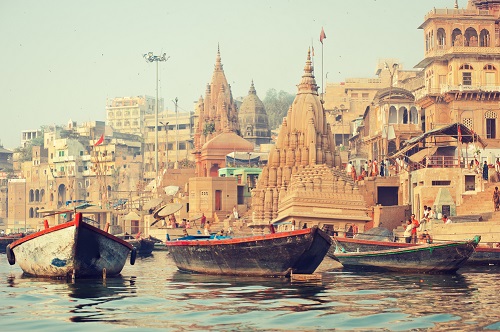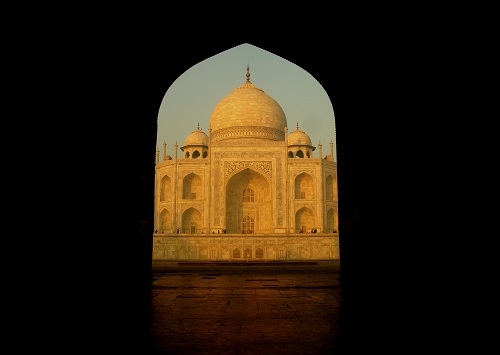India is fast becoming a major centre for medical tourism, due to the excellent standard of some clinics, for treatments such as dental implants, LASIK eye surgery and cosmetic surgery. Costs tend to be highly competitive in comparison to those in Western nations. Traditional forms of medicine are on offer, as well as allopathic treatments. We will look at some costs below.
State health insurance costs in India
The Indian healthcare system is one of the largest in the world, but around one million of the country’s citizens do not benefit from health coverage. The country spends around 1% of its GDP on healthcare, which, in global terms, is very low.
In 2014, an NSSO survey found that 80% of Indians did not have any health insurance cover. Only 18% (government funded 12%) of the urban population and 14% (government funded 13%) of the rural population were covered under any kind of health insurance.
There is technically a public healthcare system, but, in practice, most Indians end up using the private sector, in which quality can vary considerably.
How much does treatment cost in the public system?
If you are an employee and earning less than Rs 15,000 per month, you and your employer will have to make compulsory contributions into the Employees’ State Insurance Corporation (ESIC). Contribution rates are set by law. You will then be eligible to access public healthcare.
The Indian public healthcare system is propped up by non government organisations (NGOs). It is free at the point of delivery for those who are below the poverty line. Government hospitals also offer care that is free at the point of delivery.

How much does treatment cost in the private sector?
For dental care, the average price in the UK for implants is around £2,000 per tooth, whereas dental implants in India cost around £170 to £500 per tooth. Some other costs are as follows:
• All-on-4 full implants (per arch): £4,500 – £6,000
• Veneers (per tooth): £30 – £150
• Crowns (per tooth): £50 – £200
• Root canal: £29 – £59
These are average costs, as specific costs will depend on which clinic you choose and its location. You may find procedures more expensive in some regions than in others.
Remember to check with your intended dental provider that they will accept your insurance, and check your policy to make sure that it covers planned care. It is also important to check which form of payment method your intended clinic prefers, as not all credit cards may be acceptable.
Average prices for other procedures are:
• Breast implants: Rs. 103151.00 – Rs. 152023.00 (£1072 – £1580)
• Cataract surgery: Rs. 24400.00 – Rs. 55000.00 (£253 – £570)
• Gastric bypass: Rs. 205714.00 – Rs. 496244.00 (£2138 – £5157)
• Heart valve replacement surgery: Rs. 241600.00 – Rs. 361716.00 (£2510 – £3759)
• Gastroscopy: Rs. 2088.00 – Rs. 12200.00 (£21 – £126)
• Knee replacement: Rs. 130429.00 – Rs. 306710.00 (£1355 – £3187)
Physiotherapy in India ranges from Rs 250 – Rs 1500 (£2.60 – £16) per session. A consultation with an osteopath will cost less than £40. A spinal rehab session will cost from £19 – £25. Back pain treatment ranges from £16 – £32.
LASIK eye correction surgery can cost as little as Rs 5,000 (£50) per eye to over £1000, depending on your chosen clinic.
Note that these are average prices, and procedures can cost a great deal more than this. Compared with those of Western nations, however, commentators often joke that Indian hospital and clinical costs seem to be ‘missing a zero.’ In private hospitals, such as Narayana, costs are comparatively very low and, with the advent of ‘Modicare,’ they are seeking to lower their costs yet further.
Make sure you check with your intended provider about insurance coverage and preferred methods of payment. You may find in some hospitals that you need to pay up front.
Traditional medicine is widely used in India, especially in rural areas, where 70% of the Indian population lives. You will find these practises in alternative health clinics, but also in some mainstream hospitals, both in the public and the private sectors. Ayurveda, Unani, Siddha, naturopathy, homeopathy, and yoga are all recognized by the government of India (via the Central Council of Indian Medicine Act of 1970), and are all integrated into the national health care system. India has state hospitals and dispensaries for both traditional medicine and homeopathy, so you may wish to take advantage of these, in addition to more conventional Western treatments.
Again, prices will depend on the location of your treatment, but you should not find any form of traditional Indian medicine to be prohibitively expensive. The most expensive form of dara (oil) treatment can be found for £46 – £60. Massages are around the £16 – £50 mark. A month in an Ayurvedic hospital can be found quoted in the region of £700 – £800. Day rates in an Ayurveda resort cost around £46 – £70 per day. Shop around for competitive prices at yoga and Ayurveda resorts.

If you sign up with an international health insurer, the cost of your policy will depend on factors such as your age and any pre-existing conditions, as well as the kind of package you opt for (obviously, a more expensive insurance package will give you a more extensive range of treatment and facilities).
As so many variables have an effect on the cost of international private medical insurance, it is very difficult to give accurate estimates without knowing the full details of the coverage required. As a very rough guide, using a standard profile of a 40-year-old British male with no deductibles, no co-insurance, a middle tier plan/product, all modules included and worldwide coverage excluding the US, a ballpark price of around £4,000/$5,000 might be expected. Were coverage to be expanded to include the US, then the premium could increase to almost double that amount.

